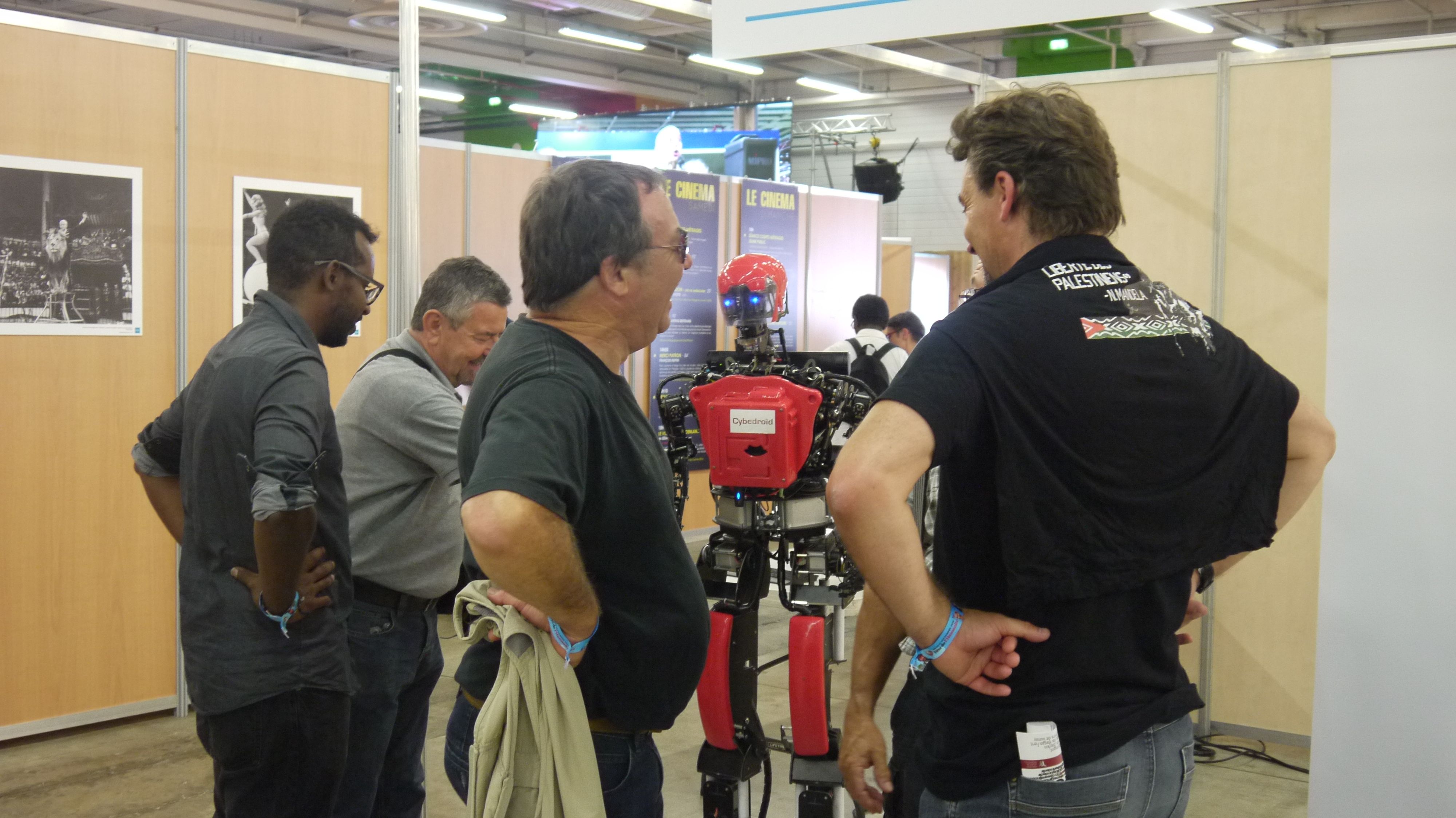For a “disruption, European style”
Published 12 September 2016 by Elsa Ferreira
A sharing economy against disruption, robotization against unemployment… At “la Fête de l’Huma”, the independent meeting of the French left-wing parties, the philosopher Bernard Stiegler and the politician Patrick Braouezec presented a European alternative, to be experimented very soon in Plaine Commune. Based on open source and contributory income.
“I am not pessimistic, I am informed”, says Bernard Stiegler. On the debate stage of Fête de l’Humanité, the autumn meeting of the French political left-wing, organized by the communist party newspaper l’Humanité, the science philosopher, director of the Innovation and research institute of the Pompidou Center in Paris and co-founder of the political and technological association Ars Industrialis, came to present a long-term experimentation project in the Paris region. With Patrick Braouezec, president of Plaine Commune, a pool of nine towns in the department of Seine-Saint-Denis set up on January 1, 2016, they defend their plan to counter the “disastrous” consequences of digital technology on the working world. For 10 years, citizens, companies and users, with help from researchers, will experiment local policies around a contributive economy, common goods and the future of work.

A “process project”, describes Patrick Braouezec, still in the rough outline stage: “We don’t know yet if we will get the beginning of the start to funding”, he admits. For the time being, we need € 300,000 to begin research… The key aspects are defined. In the tribune, the talk is about automation and the destruction of jobs: 5 million posts in the world will have disappeared come 2020, according to the research center of the Davos Forum, not really a leftist lair. “These figures are of course to be taken prudently, says Stiegler. But it is absolutely certain that employment is on a downward trend. It’s a disaster for the young, we have no right not to react.”

Contributive income
The key measure of the Plaine Commune project should be contributive income. A regime inspired from the entertainment worker’s regime in France and the sharing of knowledge in the world of free software. The objective: enhance “negentropy”, or negative entropy, i.e. “what produces diversification and knowledge”, defines the philosopher.
At the end of the year, part of the social benefits will serve to contribute to the creation of 2,000 recruitments at the minimum salary for long-term unemployed people.
Even though the ways and means are yet to be defined, contributive income is distinguished from existence universal income in that it is conditional, explains Bernard Stiegler. He points out that both are not incompatible. “In order to claim this income, you will need to regularly leverage what you have learned. In the associative world, inside the company… One will need to leverage the production of knowledge.” No amount either yet, but it should be greater than the universal income, that according to proposals is estimated between € 400 and € 1,000: “From the moment this income relies on know-how, on real work, it cannot be depreciated or underpaid”, justifies Patrick Braouezec.
For Bernard Stiegler, who compares disruption to “soft barbarism” in his latest book Dans la disruption, comment ne pas devenir fou ? (How not to go mad in disruption), we are in a “disappearance of knowledge” that is progressively being passed onto the machine. However, it’s not a question of stopping the march of progress, he says reassuringly, but more like “giving people time” and creating “reverse-automation”. Incidentally, the people heading the pilot territory decided not to talk of employment any more: from now on, one will need to say work. Because work is not replaceable, they assert.
Disruption, European style
Would a “solidarity” disruption be conceivable? “Of course, Bernard Stiegler assures Makery. What we defend is a disruption, European style. There is no question about being against it, but on the contrary stopping the digital Wild West “I shoot at anything faster than anyone else and it’s the first one to shoot”. We are Europeans, not cowboys. We use speed intelligently, with reflection, and not to outpace public authorities, political powers or create civil war. Because that’s what is happening.”
